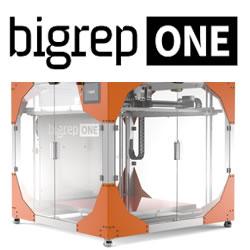Altizon to Partner with Varroc on their Industry 4.0 Initiative
Carnegie Mellon Taps Private Gift for Engineering Simulation Center
How Small Manufacturers Can Leverage Smart Manufacturing
Bosch Rexroth launches Industry 4.0 training rigs
Foxconn Replaces 60,000 Labourers With Robots in China
China's Big Bid For Germany's Industry 4.0 Technology
System 4.0: the industry of the future is already here
Hannover Messe showcases Industry 4.0 innovations
Three ways to leverage IIoT
Inaugural Smart Manufacturing Magazine Recognizes 30 Advanced Manufacturing Visionaries
Examining 'Industry 4.0"² opportunities in Japan
KUKA and Infosys Announce Industry 4.0 Partnership
Industry 4.0 applied by Lantek
HANNOVER MESSE - FogHorn™ to Showcase "Edge Intelligence" Industrial IoT Solutions at HANNOVER MESSE 2016
46% of German companies use Industry 4.0 - survey
Records 151 to 165 of 201
First | Previous | Next | Last
Featured Product

BigRep ONE: Large-Scale 3D Printing
Manufacturing and Automation - Featured Company

